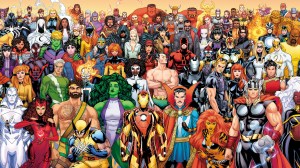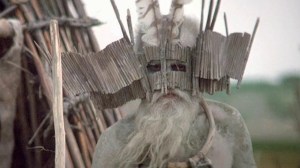Long before players ventured through the worlds of Blackmoor or Greyhawk in the earliest days of Dungeons & Dragons, Charlotte Bronte and her siblings were exploring complex fantasy worlds in what might be considered the world’s first role-playing game. While the Brontes are best known for their literary work – Charlotte wrote Jane Eyre while her sister Emily wrote Wuthering Heights, both of which are books that are standard selections in high school literature classes – the siblings along with sister Anne and brother Branwell were also responsible for creating the worlds of Gondal and Angria, complex fictional fantasy worlds that came alive through journal entries, poetry, and other works written under the aliases of characters who lived in that world.
Videos by ComicBook.com
The fictional countries of Gondal, Angria, and the Glass Town Confederacy were all inspired by 12 wooden soldiers given to Branwell by his father. Branwell and his siblings started to write miniature books and newspapers for these toy soldiers to read, which in turn inspired the creation of the Glasstown Confederacy, a shared country ruled by the toy soldiers. Eventually, the worlds of Angria and Gondal followed, and the Brontes spent countless hours jointly creating a complex history of these worlds while writing poetry and narratives from the perspective of the characters who lived these worlds.
Unlike Dungeons & Dragons, there were no formal rules involved in the creations in these worlds, but there was the shared storytelling component that is so critical to Dungeons & Dragons and other RPG games. The stories created for Gondal and Angria were also as complex as a years-long D&D campaign, with betrayals, romances, and shocking deaths. These tales were all chronicled in prose stories, which unfortunately were lost to history.
While none of the Brontes survived past 40 years old, their private worlds of Gondal survived thanks to their private journals and a book of poems written by Emily that served as correspondence between some of the characters. Many scholars consider these worlds as early versions of science fiction oreven fan fiction, but it’s also very easy to consider them an early version of a role-playing game. The worlds of Angria and Glass Town are also still impacting literature today – the Kieron Gillen and Stephanie Hans comics series DIE features these worlds and even uses Charlotte Bronte as a character who still lives in the world she created. The most recent issue of DIE even explores some of Angria’s origins, albeit with a tragic twist that ties into the RPG-inspired comic.
The next time that you sit down to play Dungeons & Dragons, remember that you’re participating in a shared storytelling tradition enjoyed not only by gamers, Hollywood actors, and countless fantasy fans, but also famous literary figures who lived hundreds of years ago.








